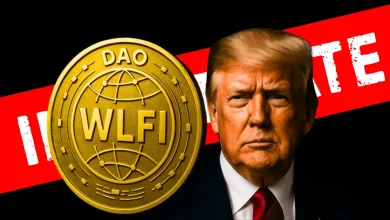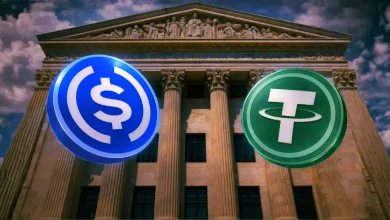
Brazil’s Central Bank will require all crypto firms to seek authorization starting 2026, applying banking-level rules to exchanges, custodians, and stablecoin transfers.
New oversight boosts investor protection as Brazil debates a $19B Bitcoin reserve plan, signaling one of the strongest national moves toward regulated crypto adoption.
Brazil is stepping deeper into cryptocurrency regulation as the Central Bank rolls out a new framework designed to oversee digital asset companies operating in the country. The move comes as Brazil’s crypto economy continues to surge, processing an estimated $319 billion worth of transactions between mid-2024 and mid-2025. That volume positions Brazil as the fifth-largest crypto market globally, according to data from Chainalysis.
Officials say the goal is not to restrict crypto usage but to bring structure to an industry that has grown faster than its rules. The Central Bank announced that starting in February 2026, all crypto firms must request authorization to operate. Companies that fail to comply have until November 2026 to exit the market.
Crypto Companies Will Operate Under Banking-Level Rules
Under the new framework, crypto exchanges, brokers, and custodians will be held to standards similar to traditional financial institutions. They must implement internal controls, cybersecurity procedures, and customer protection policies. The Central Bank says that bringing digital asset firms into its existing supervisory system will reduce fraud and improve market transparency.
Executives who have watched a growing number of scams over the past year say the move is overdue. The bank’s director of regulation explained that tighter oversight will reduce the misuse of digital assets for illegal activities and help protect regular users who treat crypto as part of everyday finance.
Stablecoins and International Transfers Face New Classification
One of the biggest shifts involves how stablecoins and cross-border crypto transfers are treated. Under the new rules, any purchase, sale, or international transfer of stablecoins will be categorized as a foreign exchange operation, similar to converting Brazilian reais into US dollars. If a transfer involves a platform that is not authorized by Brazil, it will be limited to $100,000 per transaction. Officials say the clampdown is a response to stablecoins increasingly being used for payments rather than speculation.
Brazil Considers a Bitcoin Reserve for National Strategy
Beyond regulation, lawmakers are debating a proposal that would place Bitcoin directly into the country’s reserves. The plan, informally called RESBit, would allocate $19 billion toward purchasing Bitcoin as a strategic asset. Backers compare the move to holding gold and argue that Bitcoin could help Brazil reduce its dependence on the US dollar.
The bill is still early in the legislative process and must pass through several committees before it reaches the Senate. If approved, Brazil would become one of the first major economies to hold Bitcoin at a national reserve level.
What This Means for Crypto
For exchanges, stricter rules will raise operational costs but also offer legitimacy. Registering with the Central Bank gives platforms easier access to banking relationships and stronger trust from crypto users. Moreover, for investors, customer funds will need to be held separately from company funds, reducing the risk of misuse. Clear regulation could also open the door for institutional players who have hesitated due to the legal gray area.
Never Miss a Beat in the Crypto World!
Stay ahead with breaking news, expert analysis, and real-time updates on the latest trends in Bitcoin, altcoins, DeFi, NFTs, and more.
FAQs
It’s a Central Bank system requiring all crypto companies to seek authorization and follow banking-level rules starting in 2026.
Stablecoin purchases, sales, and cross-border transfers will be treated as foreign exchange operations with added limits and oversight.
Users gain stronger safeguards, clearer oversight, and better platform accountability, helping build trust and reduce fraud risks.
Trust with CoinPedia:
CoinPedia has been delivering accurate and timely cryptocurrency and blockchain updates since 2017. All content is created by our expert panel of analysts and journalists, following strict Editorial Guidelines based on E-E-A-T (Experience, Expertise, Authoritativeness, Trustworthiness). Every article is fact-checked against reputable sources to ensure accuracy, transparency, and reliability. Our review policy guarantees unbiased evaluations when recommending exchanges, platforms, or tools. We strive to provide timely updates about everything crypto & blockchain, right from startups to industry majors.
Investment Disclaimer:
All opinions and insights shared represent the author's own views on current market conditions. Please do your own research before making investment decisions. Neither the writer nor the publication assumes responsibility for your financial choices.
Sponsored and Advertisements:
Sponsored content and affiliate links may appear on our site. Advertisements are marked clearly, and our editorial content remains entirely independent from our ad partners.






